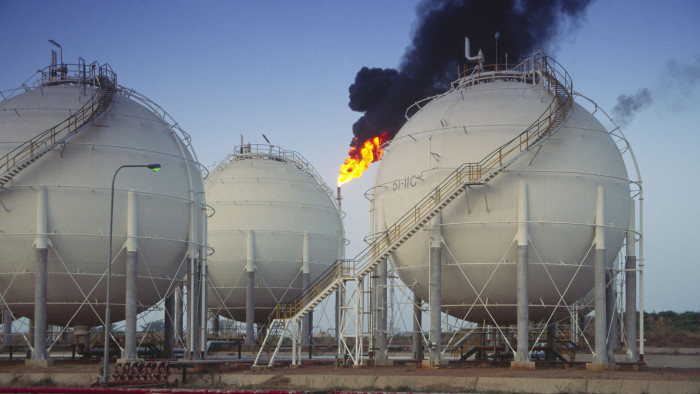Commodity traders have nothing to fear from transparency

Roula Khalaf, Editor of the FT, selects her favourite stories in this weekly newsletter.
Commodity traders are critical players in global supply chains. The core of their business is logistics — moving oil, minerals or other commodities from point A to B, connecting suppliers and customers. In a number of developing countries, the revenues from trading far exceed the amounts received in development assistance and from the extractive industries.
In 2017, leading commodity trader Glencore revealed that it paid $12.6bn to purchase crude oil from governments — almost five times more than it paid in tax for exploration and extraction.
Traders often source commodities from resource-rich governments whose citizens are heavily reliant on oil or mineral trading for their state budgets. In Iraq, business with commodity traders accounts for more than 90 per cent of total government revenue. If managed well, the trillions of dollars flowing from traders to national governments can have a transformative impact. But if managed poorly, it can mean lost revenues for citizens.
Given the importance of commodity trading, there is surprisingly limited information on payments traders make to governments in exchange for oil, gas and minerals. There is growing pressure from all sides for more transparency. Civil society and journalists are demanding more information in order to investigate alleged corruption and mismanagement.
Shareholders, lenders and international financial institutions have also been pushing for more disclosure to help guide their investment and lending decisions. In response to this, the Extractive Industries Transparency Initiative (EITI), an industry group, is working with producing countries and their national oil, gas and mining companies, global traders and civil society to improve transparency in these so-called “first trades” — the sale of oil by national oil companies to oil trading companies.
So far, this has resulted in disclosures of about $1.4tn of revenues for the sale of the state’s oil, gas and minerals, making up half of the total payments disclosed through the EITI.
The industry itself also acknowledges that it has to do more to explain its role and financial contribution to resource-rich countries.
A number of traders — including Glencore, Trafigura and Gunvor — have engaged with the EITI. Their commitment to disclose their payments to governments is a significant step towards greater transparency. With some countries relying heavily on these revenues for their state budgets, citizens must have access to information on what they receive for their finite resources.
Home country legislation in Canada, the EU and elsewhere requires companies based in those jurisdictions to disclose payments to government. The EITI, in contrast, requires transparency where extraction activities occur — from all companies, including commodity traders.
This ensures a level playing field, helping to address concerns about the commercial sensitivity of this data. Government, industry and civil society stakeholders are using disclosed data to inform national debates on extractive sector management.
A salient example is Nigeria: crude sales reporting by Nigeria EITI and the Nigerian National Petroleum Corporation (NNPC) from 2012 to 2016 has shown that Nigeria generated $104bn from the sales of crude oil and gas. This data highlighted how complex sales arrangements make it difficult to assess if Nigeria is getting a fair deal, and if all companies have equal access to the market.
These findings led the government to discontinue crude swap agreements and ensure consistent pricing practices. In a country that relies on the oil sector for 90 per cent of their foreign exchange earnings and 65 per cent of its government revenue, transparency in the proceeds from oil sales is of paramount importance.
Transparency in the first trade benefits all stakeholders — governments, industry and civil society. Early efforts from EITI-implementing countries have shown that transparency in the first trade can promote greater competition, improve access to capital, and make trading more efficient. The FT Commodities Summit taking place in Lausanne this week is an opportunity for all commodity traders to get on board and show they have nothing to hide.
Fredrik Reinfeldt is chairman of Extractive Industries Transparency Initiative and a former prime minister of Sweden
The Commodities Note is an online commentary on the industry from the Financial Times
Comments